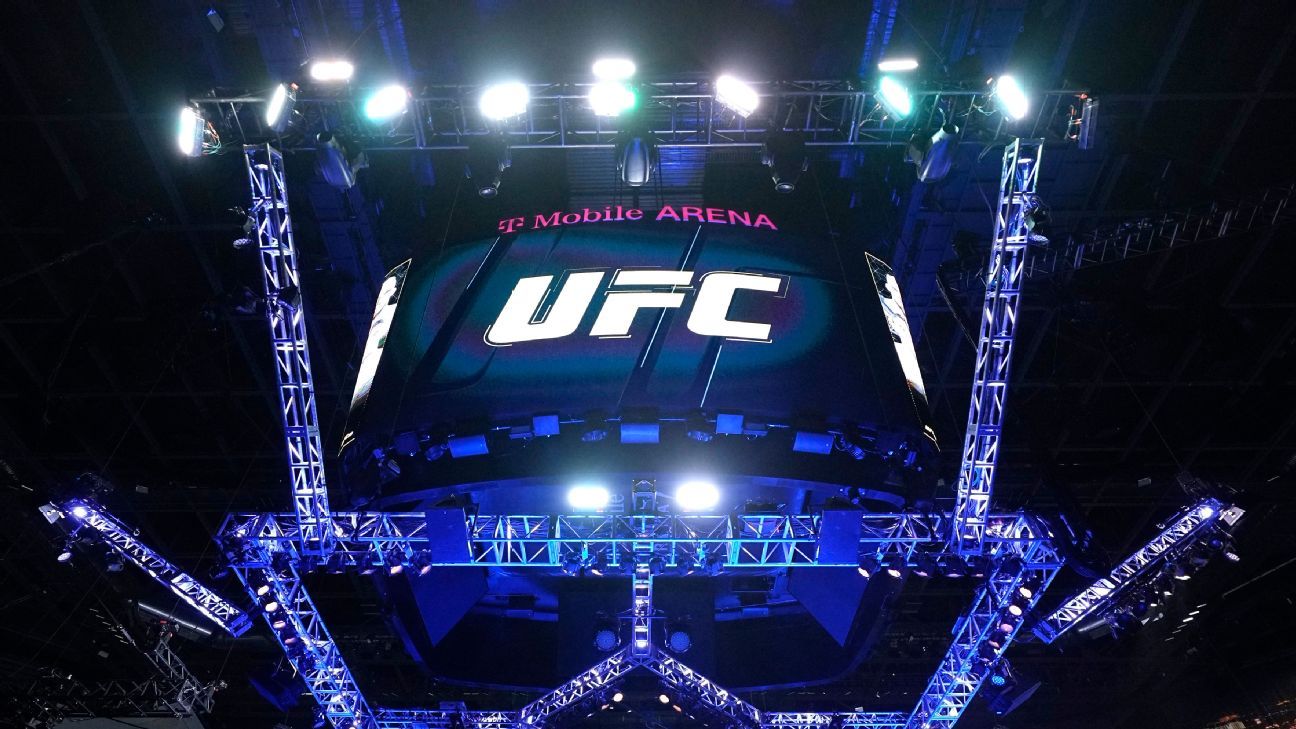Thirteen key witnesses, including several well-known fighters, will not be allowed to testify for the UFC during its upcoming antitrust trial, a court decided earlier this week.
Judge Richard Boulware declared Monday that those witnesses, named by the UFC in a trial brief last month, were not properly disclosed by the defense and struck them from being able to testify, sources confirmed with ESPN on Thursday. The witnesses now unavailable include UFC Hall of Famer Michael Bisping, popular former title challenger Chael Sonnen and active star Michael Chandler, who is expected to fight Conor McGregor in his next bout.
The lawsuit, certified as a class action representing more than 1,200 fighters, was first filed in 2014. The trial is expected to begin in United States District Court for the District of Nevada on April 15.
The group of former fighters suing the UFC claims the promotion is a monopsony that used anticompetitive practices to suppress athlete wages. They argued that the 13 witnesses were either not disclosed at all or disclosed too late and the plaintiffs didn’t have the ability to depose them. Eric Cramer, an attorney for the plaintiffs, called the defense’s tactic “trial by ambush” in the hearing Monday, according to a court document obtained by ESPN.
The UFC’s attorneys countered, saying all of the names mentioned as possible witnesses were named in documents and by the plaintiffs previously and none of them, nor what they would testify about, should have been a surprise.
Along with Bisping, Sonnen and Chandler, popular retired fighter Donald “Cowboy” Cerrone and former UFC women’s bantamweight champion Miesha Tate were named as potential witnesses for the defense. Five managers — Jason House, Josh Jones, Dan Lambert, Ali Abdelaziz and Ed Soares — and three UFC employees — matchmaker Mick Maynard, production czar Craig Borsari and regulatory affairs head Marc Ratner — are also precluded from testifying, Boulware said.
“We find it remarkable that while claiming to represent more than 1,200 athletes, the plaintiffs’ lawyers fought to exclude testimony beyond a cherry-picked set of disgruntled individuals,” Chris Yates, the co-lead counsel for the UFC and a partner with Latham & Watkins, said in a statement. “This trial should be about the actual facts, so jurors should also hear from a cross-section of UFC athletes, including the many who did well and had positive experiences. Despite this ruling on the witnesses, we were pleased overall with the outcome of Monday’s hearing and continue to believe strongly that the facts and law are on our side in this case. We look forward to making our arguments to a Las Vegas jury at trial.”
Boulware on Monday did rule in favor of the defense on several other elements of the case, including the use of video footage that would demonstrate how much the UFC spends on production. The UFC will be able to discuss the story of the rise of the promotion prior to 2005 and likeness disputes the plaintiffs have were barred from being talked about at trial.
Attorneys from both sides are currently in private mediation about a settlement, but that does not necessarily mean one will be reached.
The plaintiffs are seeking damages between $84 million and $1.6 billion, though no changes to the UFC’s business practices. The latter could be addressed in another lawsuit, Johnson vs. Zuffa, where the plaintiffs are still seeking class certification.
None of the more than 1,200 fighters in the class have opted out of receiving compensation in the case of a plaintiff victory or settlement. The class makes up any fighters who competed in the UFC from Dec. 16, 2010 to June 30, 2017.
